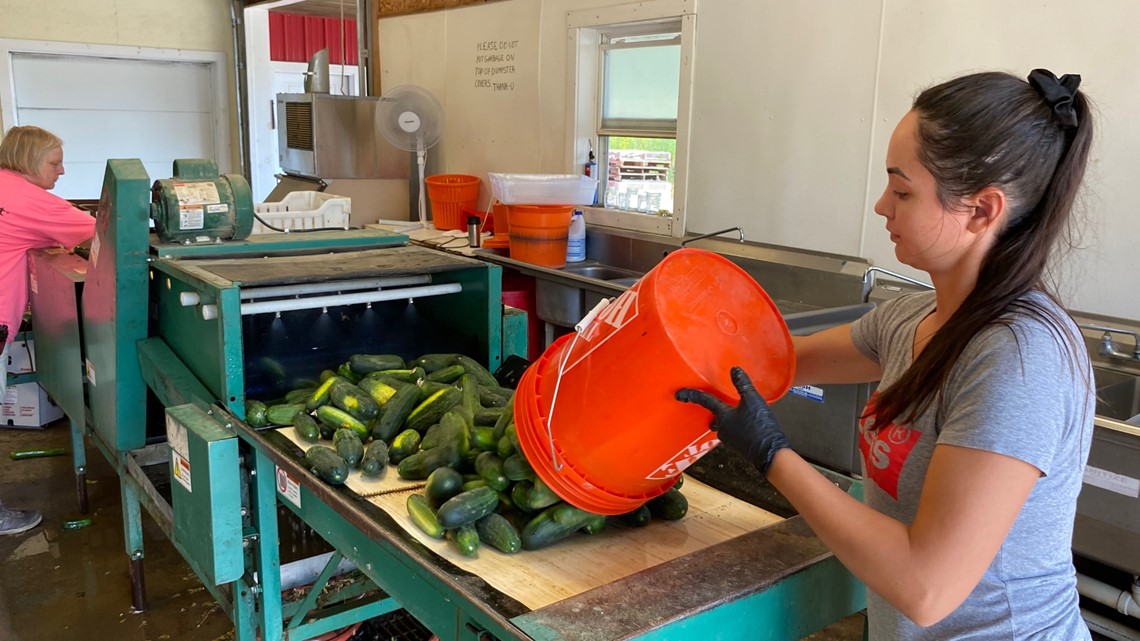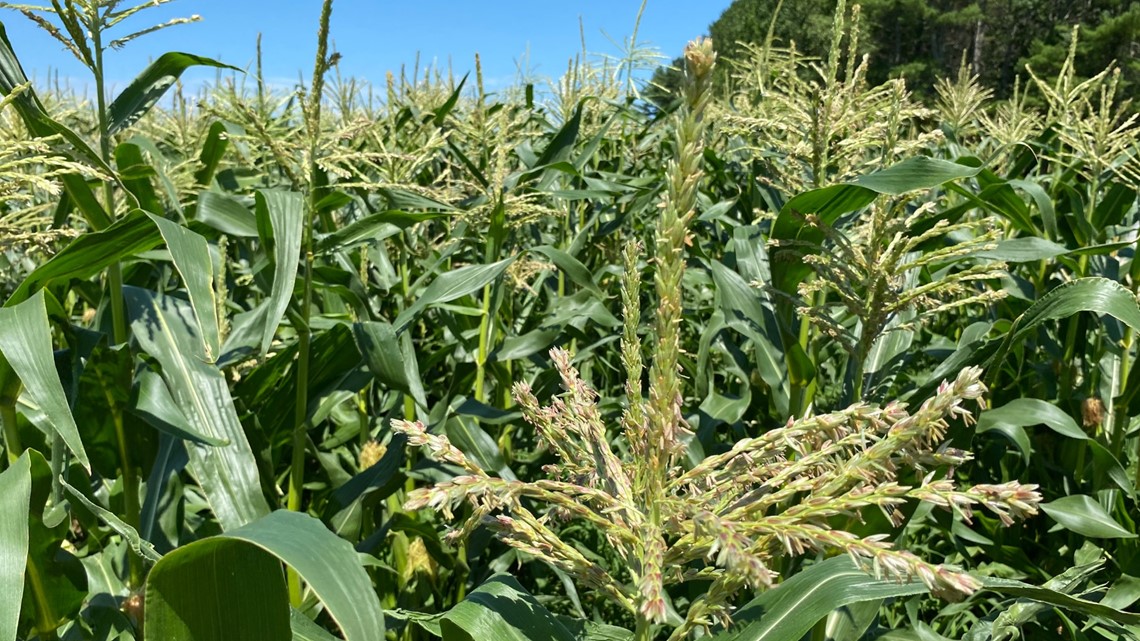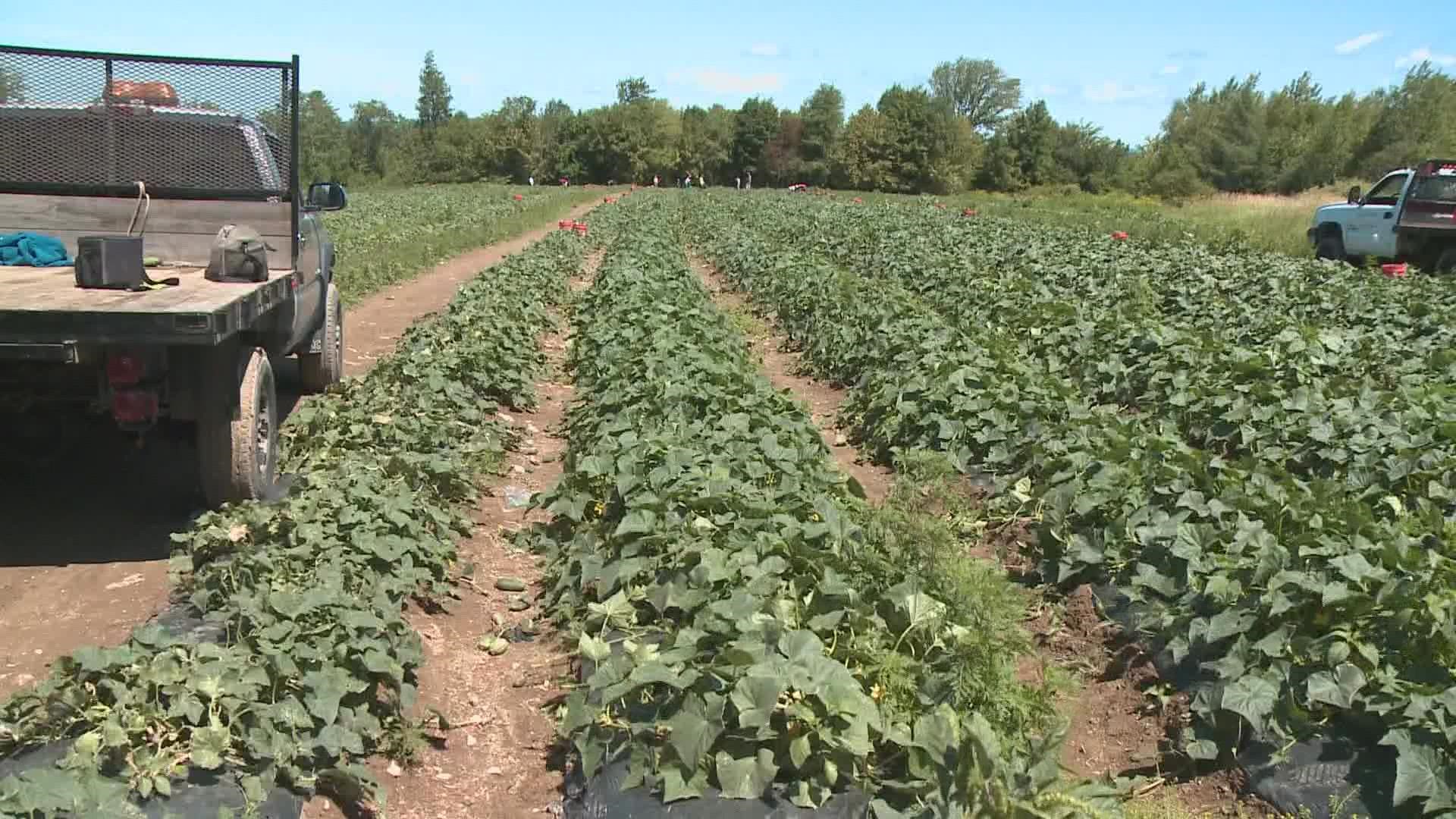NOBLEBORO, Maine — On the hilltop field that farmer Bob Spear says is the highest point in Lincoln County, the vegetables are lush and growing. Acres of tomatoes, cucumbers, and summer squash are ripening or being harvested, despite the fact this part of Maine is listed as being in moderate drought.
In these fields, drip irrigation has replaced the natural rain.
“[Irrigation] is essential nowadays if you want a quality crop,” Spear said.
He has been farming this land most of his life.
The farm employs more than 40 people this year, growing a wide range of vegetables for their own stands and area grocers, as well as the Good Shepherd Food Bank. Spear’s farm also produces beef and hay.


The current drought affecting the most populated parts of Maine hasn't hurt the vegetables much, Spear says. That’s primarily because of the irrigation.
Crops that take up more space, primarily sweet corn, beans, and squash, are not being irrigated, because there is a limit to what the farm system can handle. Despite that, Spear says those crops appear to be doing all right, but he is thankful for the rain those crops got on Monday.
“They were at the point where they really needed some water, and last night, according to our gauge here, we got 1.2 inches which is a big help.”
As for the corn, Spear says it likes hot, humid weather, which has now come to midcoast Maine. He predicts the first planting should be ready to pick very soon.
But the drought is still having an effect.


The farm produces hay for its own use and for sale, and this year looks like only a fair year for hay.
“As it stands now, you drive around the countryside see all these fields [are] brown. It's very doubtful there will be a second crop.”
And 1.2 inches of rain would normally be a decent rainstorm, but in a drought, it won’t go far.
Nick Stasulis of the U.S. Geological Survey, who is also co-chair of the Maine Drought Task Force, says the state received one to three inches of rain in Monday’s storm. But he also pointed out that with such a significant rainfall deficit, getting out of drought will require many such storms.
“I’m guessing that water didn’t make it down far in the topsoil," Stasulis said. "It will provide a watering event for a few days, but that’s not going to get us through the next week or two, or even the next few days, based on the temperatures we're going to see.”
He says Maine will need multiple storms with steady, soaking rains to truly relieve the drought.
Meanwhile, gardeners, homeowners, businesses, and of course, farmers, will do the best they can with watering and waiting for the next storm.
“Farming is a risk and you have to go with the hand your dealt,” Spear said. “We try to work around the problems we face.”

